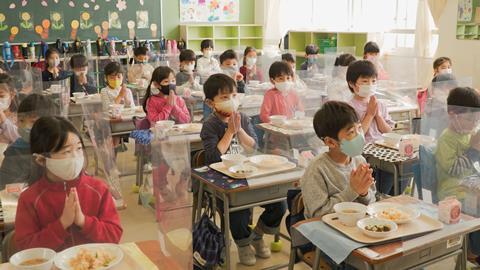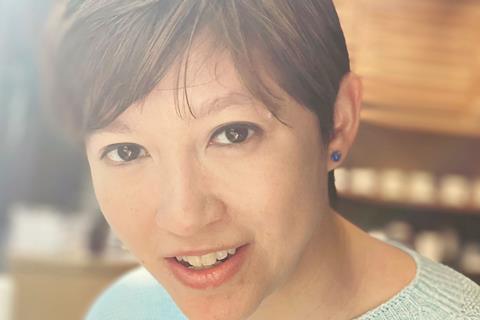
Ema Ryan Yamazaki has spent the past few years working on two very different films.
The Making Of A Japanese, which screened at Thessaloniki International Documentary Festiva (TIDF) this month, pictures life at an idyllic Japanese primary school; Black Box Diaries, which she edited and coproduced, is directed by Shiori Itō, and tells the harrowing story of Itō’s own sexual assault.
The film follows her attempt to bring to justice her high-profile rapist, the journalist and media personality Noriyuki Yamaguchi.
The Making Of A Japanese aims to show Japanese society at its best. The second reveals the misogyny, corruption and culture of silence lurking beneath the surface. Both were produced by Yamazaki’s partner, Eric Nyari through his company, Cineric Creative.
The Making Of A Japanese premiered at the Tokyo International International Film Festival in November 2023, while Black Box Diaries debuted at Sundance in January. Autlook is handling The Making Of A Japanese which will be released in Japan through Happinet Phantom Studios, before NHK broadcasts its version.
“When I was living in New York, I remember people telling me ‘you’re so responsible, you’re so hard working, you’re always on time’,” the director explains of how she has been described by non-Japanese friends.
She was surprised at such compliments. After all, she was just behaving like anyone else who had been to a Japanese elementary school. “As you see in the film, we’re ingrained to learn responsibility at a young age and like it instead of it being a burden. At six years old, you’re in charge of turning your classroom lights on every day or opening the window. You learn responsibility as something you want versus something you want to avoid.”
Yamazaki filmed at the school for 150 days and amassed several hundred hours of material. Shooting took place in the run-up to the Tokyo Olympics, which were eventually postponed. The city she was shooting in was the host town for the US Olympic team - one reason she believes why the school authorities were ready to allow the cameras in.
“Japan is known for its sushi and its samurai. There are certain images of Japan out there which are true but very limited. My big motivation in moving back to Japan after spending almost a decade in New York was to tell more complex stories about Japan. These two films in a very stark way show the extremes.”
For the widely admired school system also produced the man who raped Ito.
“Black Box Diaries is a’ black and white’ film where the filmmakers, me included, are trying to show the worst parts of Japanese society and how Shiori the director had to fight them,” says Yamazaki. “Thanks to people like her, hopefully my generation can improve on those things.
“I want to be hopeful for Japan, I want to be optimistic,” she continues. “When I see a Japanese elementary school, it’s idealised, like a little society unto its own. I see hope because this generation is being taught foundations of equal [rights].”

When she moved back to Japan in 2017, Yamazaki knew of Itō but didn’t know her personally. They met round the time Itō won her court case in 2019.
“I got to know her as a filmmaker first. She’s a great cinematographer and she shot one of my short films [2021’s Temple Family].”
Black Box Diaries was hailed as one of the discoveries of this year’s Sundance. “That is so important for Japan,” Yamazaki reflects. “Japan is a place where the documentary industry is not as vibrant as in the US. We need the international attention for people in Japan to pay attention. For better or worse, Japan is a country where they take their cues from ‘oh it’s in these international festivals so it must be important.
“This is a film that could really shift society. We are ready in Japan, my generation is ready, reply to support Shiori and not put up with this anymore. I just hope it will be seen as a turning point.”
“There isa small wave of #MeToo happening in Japan in the last year,” she reveals. ‘I know it’s late but better later than never. Things that didn’t happen before are finally happening with victims coming forward.”
Yamazaki started editing Black Box Diaries before she shot Making Of A Japanese and then finished the editing after her school doc was complete.
Financing model
Yamazaki and Nyari have devised a financing model for their documentaries that enables them to tap both Japanese and western funding. They first approach Japanese public broadcaster to secure the money they need to shoot their films before looking for international co-producers to give the films an appeal beyond Japan.
“We have companies [based] in Tokyo and New York,” Yamazaki explains. “We often do a coproduction with NHK where we deliver a discreet [local] version of the project, shorter and with slightly different themes. In delivering that, we at least get enough funding to at least get through the filming process and we keep the rights to the film itself.
“I edit my own films,” she adds of how hermulti-tasking keeps the budget down. “Even though it took a year, it didn’t really cost extra.”
The Making Of A Japanese won the best pitch at Tokyo Docs. It was also presented at Hot Docs Forum and at DocedgeKolkata. Finland’s Pystymetsä and France’s Point Du Jour joined as co-produced with further support from Finnish broadcaster YLE.






![The Brightest SunScreen[Courtesy HKIFF]](https://d1nslcd7m2225b.cloudfront.net/Pictures/274x183/3/5/0/1448350_thebrightestsunscreencourtesyhkiff_312678.jpg)


















No comments yet